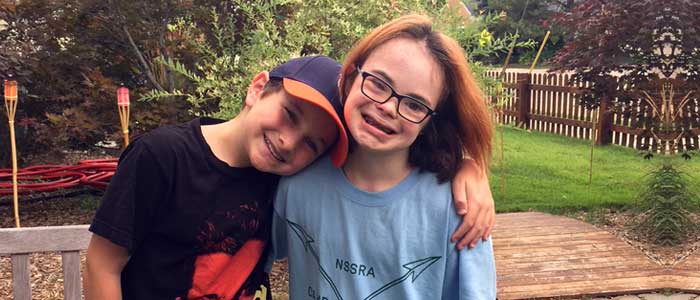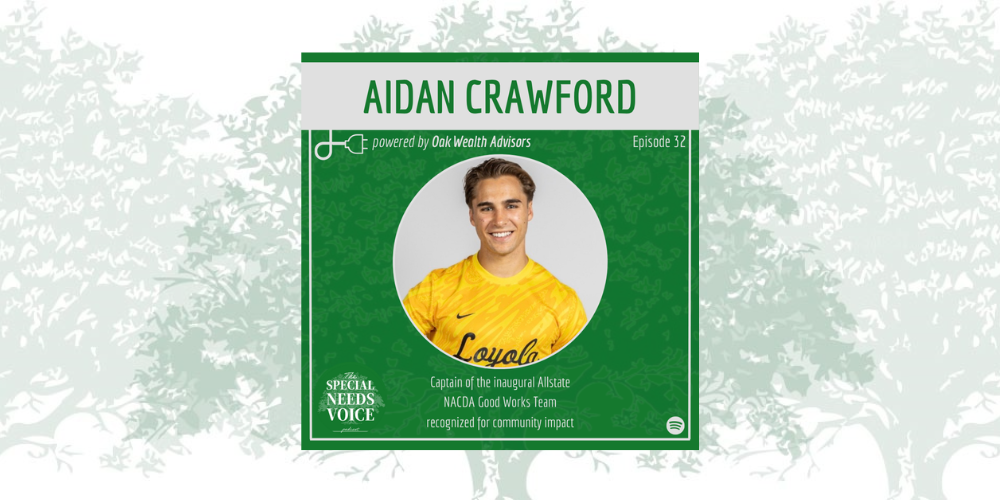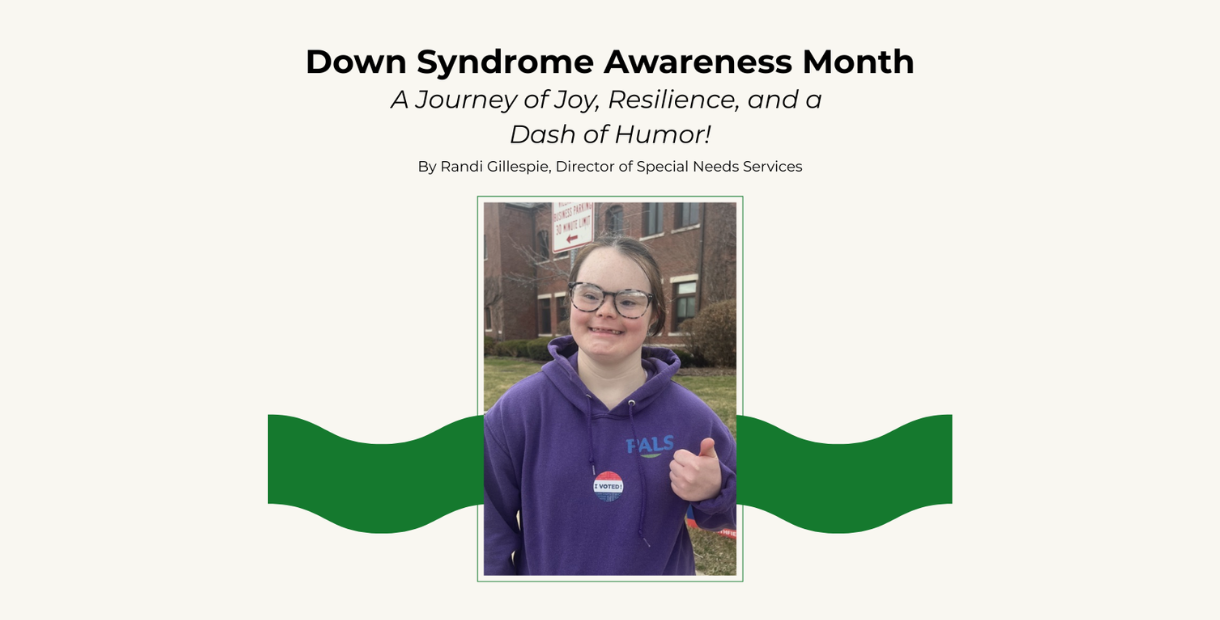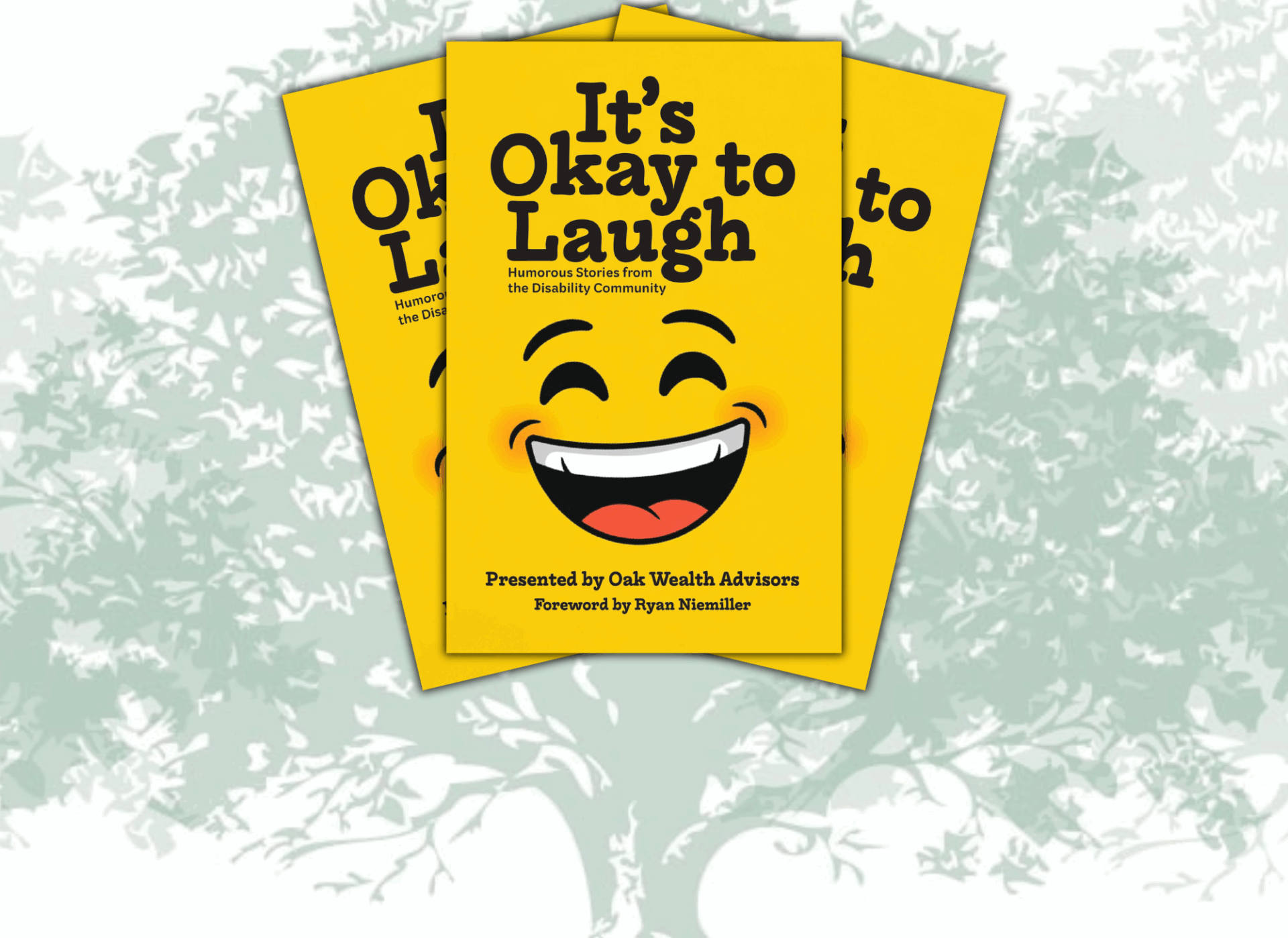From Randi Gillespie of Oak Wealth Advisors
![]() A few years back, I penned an article about my youngest child, Liam (then 7) and his older sister, Maddy (then 10) that ran in the Chicago Tribune Perspective Section. The heart of the article was that Maddy had Down syndrome and her younger brother, Liam, was angry that she had Down syndrome. He made it perfectly clear one morning by revealing to her,
A few years back, I penned an article about my youngest child, Liam (then 7) and his older sister, Maddy (then 10) that ran in the Chicago Tribune Perspective Section. The heart of the article was that Maddy had Down syndrome and her younger brother, Liam, was angry that she had Down syndrome. He made it perfectly clear one morning by revealing to her,
“I wish you did not have Down syndrome.”
I chronicled their relationship and the events which led up to Liam’s honest yet painful words. I wrote that I expected that their relationship would evolve over time and that growing up with a sister who had a disability would not only positively shape him in ways that he could not imagine but the benefits of their sibling relationship would enable him to examine and interpret the world differently. His eyes would see things in ways that others who do not have a sibling with a disability cannot. He would remind people that his sister has the right to be valued, respected and accepted. Simply put, he would develop into a more caring and compassionate young man because he had a sister with Down Syndrome.
Fast forward 3 years. Their sibling relationship has never been better. They are thick as thieves and remain each other’s confidants. They share intimate secrets with one another that only loving and devoted siblings share. They never argue, they never provoke one another with name calling and that whole, “I wish my sister did not have Down syndrome” is no longer an issue.
This is so not true.
Three years later, Maddy still has Down Syndrome and Liam is still trying to figure out his feelings about his sister. There are days he confesses he does not love her and days when he tells me that that he does not like her. To be fair, Maddy has expressed similar sentiments toward Liam. I recognize these are common attitudes held by most children whether a disability exists in their family or not.
Their relationship is not an adversarial one. Liam does show affection, tenderness, and joy towards Maddy. He just does not love that she has Down syndrome. He does not love all the “stuff” that comes with her condition. Although my heart aches to hear him admit how he feels, I cannot fault him for expressing himself and talking openly about his feelings. Although their relationship continues to parallel that of an emotional pendulum, his ability to remain open in discussing his feelings continues to amaze me. I admire his candor.
Throughout the years, there have been many rays of sunshine between them. They play together. They have real conversations with one another. They unite and come together when it suits both of their needs. They jump on the trampoline together without any yelling, screaming, or tears. Despite below freezing temperatures coupled with snow and wind in their faces, they enjoy sledding down the largest sled hills together while laughing and giggling on their way down.
I have watched Liam mature over the years. He has grown to accept everything that makes Maddy who she is. Creating meaningful moments between the two of them requires fortitude, resolve and a lot of patience. It also requires friendship and devotion. Fortunately, Liam embraces those qualities and is fulfilled by being the brother that can provide Maddy with those memorable moments.
It was only recently I recognized that I no longer feel the need to step in and engineer their sibling relationship. I have come to the realization that if Liam did not enjoy being Maddy’s brother, he would not go out of his way to make her happy. He may never love the fact that Maddy has Down syndrome. I’m okay with that.
The post I Still Wish You Did Not Have Down Syndrome appeared first on Oak Wealth Advisors, LLC.





